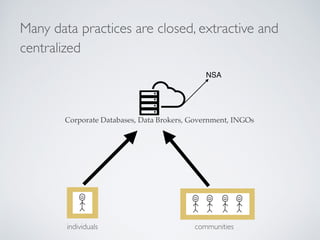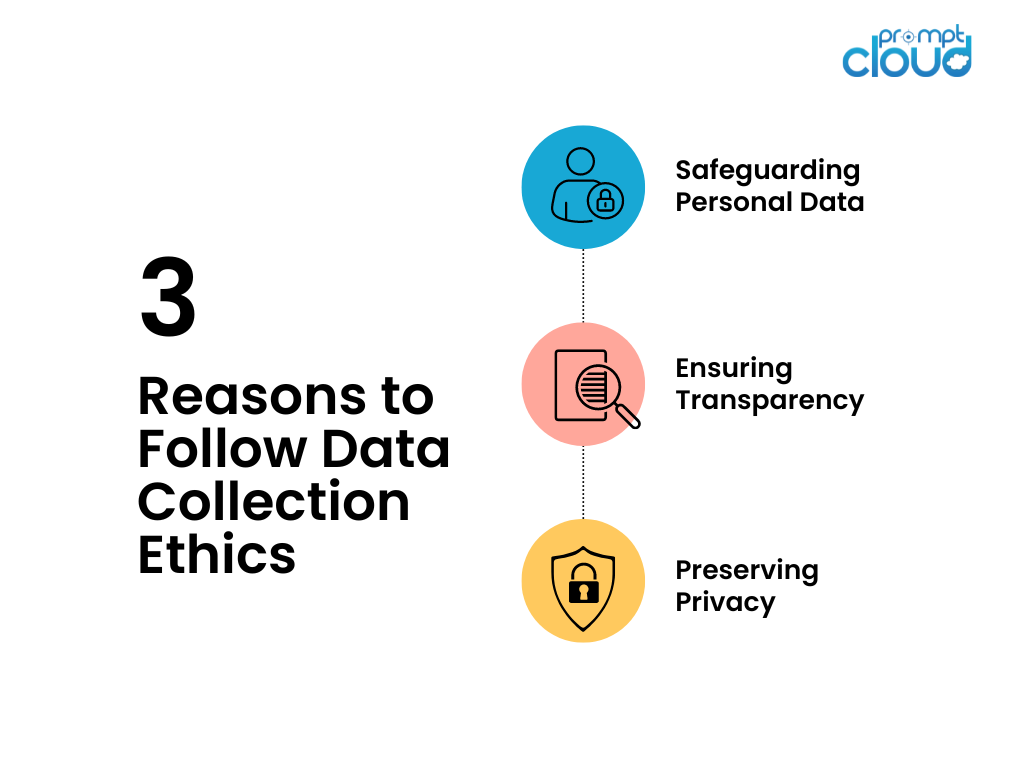In a world increasingly driven by information, the role of those who collect and distribute personal insights cannot be overlooked. Individuals often unknowingly become subjects of scrutiny, with their habits and preferences meticulously documented. This phenomenon raises pressing questions about consent and privacy. Are the actions of these entities justified? Many ponder this dilemma.
With technology advancing at a rapid pace, the boundaries of acceptable conduct blur. Consumers frequently contribute their personal details for a multitude of services, often unaware of the far-reaching implications. Each click, each interaction, becomes a piece of a larger puzzle. As businesses seek to optimize their strategies, the significance of personal information only intensifies.
However, the potential for misuse lurks in the shadows. On one hand, there’s a clear value to understanding consumer behavior. On the other, there’s an intrinsic risk associated with handling sensitive information without transparency. The struggle between innovation and individual rights continues to be a topic of heated debate.
Amidst this backdrop, conversations around accountability become essential; who is truly responsible when trust is breached? As society grapples with this intricate web of interests, the need for clear guidelines becomes ever more pressing. Each perspective adds a layer of complexity, inviting a closer examination of the responsibilities that come with power.
Understanding Data Brokers’ Role
In modern society, information plays a crucial role in shaping various interactions. Entities engaged in the acquisition and sale of personal information have emerged as significant players. They collect vast amounts of details from diverse sources. This can include online behavior, purchase history, and social media activity. Their influence stretches across multiple sectors, from marketing to security.
These intermediaries facilitate connections between information providers and those in need of specific insights. They aggregate and analyze collected information, transforming it into valuable resources. This allows businesses to reach targeted audiences more effectively. However, the methods by which they operate often raise significant questions regarding morality.
Many individuals remain unaware of how their personal information is being utilized. Transparency is often lacking, resulting in a gap between consumer expectations and actual practices. As consumers become more informed, demand for clarity grows. It’s essential for these companies to adapt to changing awareness levels among the populace.
| Role | Impact on Industry |
|---|---|
| Information Aggregation | Enhances targeted marketing strategies |
| Consumer Profiling | Improves service personalization for businesses |
| Risk Assessment | Provides valuable insights for fraud detection |
| Market Research | Informs product development and trends |
As this landscape evolves, it’s necessary for stakeholders to engage in meaningful discussions. The relationship between these intermediaries and consumers will undeniably shape future practices. Navigating this complex environment requires understanding and balancing interests across all parties involved. Ultimately, fostering trust is pivotal for a sustainable future in information management.
Privacy Concerns in Data Collection

In today’s digital landscape, significant apprehensions arise regarding personal information. Every interaction online leaves behind a trail of insights. Companies often collect, analyze, and utilize this information without clear consent. Comfort zones are fading as individuals become increasingly aware of their exposure. Privacy matters significantly, yet many overlook this crucial aspect.
Individuals are often unaware of what they are surrendering. Essential details, such as browsing habits, preferences, and even location, are harvested routinely. This practice raises important questions about autonomy and respect for personal spaces. What happens to the information once it is collected? Who has access to it? These questions linger, often unanswered.
Moreover, the risk of misuse heightens. Information can be sold or shared with third parties, leading to targeted marketing that can feel invasive. This invasive approach can transform users into mere commodities, stripping away the personal significance of their data. Individuals may find themselves in unwelcome situations, subjected to unwanted advertisements based on their private activities.
Additionally, there’s a growing concern about potential breaches of security. Instances of hacking and unauthorized access have dominated headlines, revealing vulnerabilities that threaten the confidentiality of personal information. Such incidents not only jeopardize users but also damage trust in institutions that claim to protect this information. As more cases surface, anxiety surrounding the security of personal details intensifies.
On a broader scale, the implications can be more profound. Collective data misuse can lead to societal issues, including discrimination and manipulation. For instance, algorithms may inadvertently reinforce biases by targeting specific demographics based on collected information. This can create echo chambers that limit exposure to diverse perspectives, ultimately hindering personal development.
In light of these issues, understanding rights becomes crucial. Consumers must educate themselves about what information is collected and how it is utilized. Knowledge empowers individuals to take control of their personal narratives. Advocating for transparency can drive change within industries that prioritize profit over privacy. This shift is not just essential; it’s vital for preserving individual rights in an ever-evolving digital world.
Amidst these complexities, the call for reform grows louder. Stricter regulations could ensure that personal information is treated with the respect it deserves. As society grapples with these challenges, a collective effort is necessary to foster an environment where autonomy and privacy are paramount. It’s not merely about protecting information; it’s about safeguarding identities.
Ethical Implications of Data Use
In today’s interconnected world, the utilization of information poses significant challenges. As organizations increasingly rely on personal insights, the consequences of such actions become more pronounced. Individuals often remain unaware of how their information is being harnessed. This lack of awareness can lead to a myriad of ethical dilemmas concerning consent and autonomy.
Consumers deserve to have their rights respected. Companies must tread carefully in this complex landscape. Transparency is essential, yet often lacking. Many individuals feel uneasy about how their information is handled. Consequently, ethical considerations emerge, prompting critical discussions about boundaries and responsibilities.
Understanding the implications of using this information is crucial. When insights are misused or mishandled, Medium trust erodes swiftly. Organizations risk not only reputational damage but also legal consequences. There is a fine line between leveraging insights for business growth and exploiting them for undue advantage. This delicate balance becomes even more challenging in today’s competitive markets.
Individuals have a right to know how their information is utilized. Informed consent should be prioritized over manipulative practices. Furthermore, considerations around potential biases in information usage cannot be overlooked. Misrepresentation can lead to harmful stereotypes and discrimination, affecting vulnerable populations disproportionately. As society evolves, so too must the understanding of respectful engagement with personal insights.
In conclusion, the landscape of information use demands careful navigation. Ethical responsibilities are not merely options; they are necessities. Consumers must be empowered to make informed choices. Organizations must prioritize honesty and accountability in their practices. Only then can a sustainable and respectful relationship between entities and their audiences flourish.
Consumer Awareness and Rights

In today’s digital landscape, individuals often feel overwhelmed by the complexities of information usage and rights. An understanding of one’s own rights is crucial. Many consumers are unaware of how their personal information is utilized. This lack of awareness can lead to exploitation and misuse of private data. As technology advances, so does the need for informed individuals who can navigate this intricate web of practices.
Consumers must be proactive in understanding their rights regarding personal information. This includes knowing what information is collected and for what purposes. Awareness empowers individuals to make informed choices. Here are some essential rights consumers should know:
- Right to access personal information.
- Right to correct inaccurate data.
- Right to request deletion of personal information.
- Right to opt-out of marketing communications.
- Right to receive transparent information about data usage.
Being informed about these rights can significantly alter how individuals interact with organizations. Furthermore, when consumers understand their rights, they can better protect themselves against potential abuses. However, many face challenges in exercising these rights due to complex policies and insufficient support. Transparency often seems lacking, leading to confusion and mistrust.
Organizations are increasingly required to provide clear guidelines regarding consumer rights. Individuals should actively seek clarity in policies concerning their information. Advocacy groups play a vital role in educating consumers about these issues. They help bridge the gap between organizations and individuals, ensuring that rights are respected.
Legislation also contributes significantly to consumer protection. Laws are evolving, offering stronger safeguards for personal information. Regulations like GDPR aim to empower consumers, granting them control over their data. Knowledge of such laws can instill confidence as individuals navigate their digital lives.
Ultimately, a well-informed consumer is a powerful one. Awareness campaigns can help illuminate rights that are often overlooked. Empowering individuals to assert their rights fosters a culture of accountability among organizations. As scrutiny on information practices increases, consumers must remain vigilant and proactive in safeguarding their interests.
Regulatory Framework Surrounding Brokers
In an era dominated by information, regulating entities involved in personal information exchange is crucial. These entities play a significant role in our digital lives. Policies governing their operations are intended to ensure transparency and protect individual privacy. However, the landscape is complex and continuously evolving.
Many countries have established legal frameworks to oversee the actions of these entities. These regulations aim to balance economic interests with individual rights. Some regions, like the European Union, have implemented strict rules that govern data handling. This includes measures that ensure individuals have greater control over their personal information.
In contrast, other places may lack comprehensive guidelines, leading to potential misuse. Regulatory measures often include requirements for consent before collecting information. Moreover, organizations may be obliged to inform individuals about how their data will be used.
| Country | Regulation | Key Features |
|---|---|---|
| United States | California Consumer Privacy Act (CCPA) | Consumer rights to access, delete, and opt-out of data selling. |
| European Union | General Data Protection Regulation (GDPR) | Strict consent requirements, data portability rights, and hefty penalties for violations. |
| Canada | Personal Information Protection and Electronic Documents Act (PIPEDA) | Ensures consent for data collection and provides access rights. |
In addition to national regulations, industry self-regulation also plays a part in shaping how these entities operate. Many companies adopt voluntary guidelines to foster trust with consumers. Such initiatives can enhance accountability, but they often lack the enforcement mechanisms present in formal laws. As a result, the effectiveness of these measures can be variable.
The ongoing dialogue among policymakers, businesses, and consumers influences this regulatory environment significantly. New challenges arise almost daily due to technological advancements and changing consumer expectations. Thus, staying informed and adaptable is essential for all stakeholders involved in this intricate system.
Impact on Targeted Advertising Practices

In recent years, targeted advertising has undergone a significant transformation. Techniques have evolved, enabling advertisers to reach specific audiences with remarkable precision. This evolution has been driven largely by the availability of vast amounts of consumer information. As a result, marketing strategies have become more personalized and effective. Brands can now tailor their messages and offers to individual preferences, increasing engagement.
However, this targeted method raises intricate issues. Not all consumers are comfortable with their information being utilized in such a manner. Privacy concerns have emerged as a primary topic of discussion among individuals and organizations alike. While many appreciate personalized content, others fear invasive practices that compromise their personal information.
Given this landscape, companies are tasked with striking a balance. Advertisers need to create compelling campaigns while respecting individual boundaries. Crafting personalized messages requires insights into consumers’ preferences, habits, and behaviors. Such granularity often involves piecing together information from various sources.
As businesses dive deeper into this realm, ethical dilemmas arise. Consumers may unwittingly provide consent without fully understanding the implications. This lack of transparency can lead to feelings of deception. Many question whether they are genuinely benefiting from targeted approaches or simply becoming pawns in a larger game.
Moreover, regulatory bodies have started to take notice. New guidelines aim to clarify what constitutes acceptable practices in this domain. Organizations must adapt to these changes to maintain consumer trust while maximizing their advertising effectiveness. Some experts argue that in order to foster a healthier environment, brands should prioritize transparency. Clear communication about how information is used can alleviate some concerns.
Ultimately, the relationship between targeted advertising and consumer privacy remains complex. As the landscape continues to evolve, both parties must navigate this intricate web. Companies keen on leveraging sophisticated strategies must also embrace responsibility. Only by understanding these dynamics can they cultivate lasting connections with their audiences.
Data Security and Protection Measures
Ensuring safety of personal information has become crucial in modern society. As organizations increasingly rely on information to drive their operations, safeguarding this information is paramount. High-profile breaches have raised public consciousness regarding vulnerabilities present in various systems. The importance of robust protective measures cannot be overstated.
- Encryption techniques safeguard sensitive information during transmission.
- Regular software updates minimize risks associated with vulnerabilities.
- Access controls limit who can view and manipulate information.
- User education promotes awareness about phishing attacks and scams.
Protective practices extend beyond technical solutions; they encompass organizational behavior as well. Companies must cultivate a culture of security where every employee understands the significance of protecting information. By ensuring ongoing training, organizations can prepare staff to recognize potential threats and act accordingly, thereby creating a more resilient environment.
- Implementing multifactor authentication adds an extra layer of security.
- Conducting regular audits helps identify potential weaknesses.
- Utilizing secure cloud services ensures reliable access while maintaining safety.
- Establishing incident response plans prepares organizations to act swiftly in emergencies.
Moreover, maintaining transparency regarding information practices fosters trust with consumers, who wish to understand how their information is handled. Businesses that communicate their safety measures effectively can build a loyal customer base, as clients feel more secure when they know their data is treated properly. Adapting to ever-changing threats requires ongoing commitment, but proactive measures will result in a safer digital landscape for everyone involved.
Transparency in Data Acquisition Processes
In today’s digital age, clarity in how information is gathered is crucial. Individuals need to understand the methods employed to obtain their personal details. Many organizations operate in the shadows, lacking openness about their practices. This secrecy leads to increasing distrust among consumers. Consequently, fostering an environment of transparency can bridge this gap.
Consumers deserve to know where their information comes from. When organizations collect personal details, it should be clear how this is done. Many people unknowingly consent to share their information. Often, this occurs without fully comprehending the implications of their consent. Awareness is the first step towards reclaiming control over personal data.
Moreover, when organizations disclose their methods, it fosters a sense of security. Trust becomes a vital currency in this landscape. But in cases where clarity is absent, suspicion tends to flourish. For instance, numerous scandals have highlighted the extent of hidden practices that violate user trust.
Exemplifying the need for transparency, consider the case of a major social network. This platform faced severe backlash after revelations about unauthorized access to user data, demonstrating the critical need for open communication regarding personal information handling. Users were left feeling betrayed, as their private details were mishandled, often without their knowledge. This incident sparked widespread debate about what constitutes acceptable practices in information gathering.
Furthermore, regulatory frameworks should encourage organizations to be more forthcoming. Clear guidelines can help standardize how information is acquired. It’s essential to balance the need for operational privacy with consumer rights. Only through such efforts can trust be rebuilt over time.
Ultimately, proactive communication is imperative. Organizations must prioritize transparency in their operations. Vulnerability leads to connection; when consumers feel informed, they become more engaged. In an era of rapid technological change, maintaining this trust will be key to sustainable relationships. Without transparency, any progress made in fostering trust may be in vain, leading to a cycle of suspicion and disengagement.
Case Studies of Ethical Violations

In examining situations where moral standards were compromised, one can uncover disturbing trends. These incidents highlight how organizations sometimes prioritize profit over integrity. Each case serves as a critical reminder of the potential harm caused by neglecting responsible practices. Understanding these examples helps shed light on broader implications of privacy infringement.
In 2014, a well-known company faced backlash after it was revealed that they had collected personal information from users without proper consent. This incident sparked outrage among consumers, leading to widespread distrust. What began as an innovative approach to personalized services spiraled into a public relations disaster. People felt betrayed, as their private information had been exploited for commercial gain.
Another notable case emerged in 2020 when a major social platform was accused of sharing user data with third parties without clear disclosure. Users were unaware that their interactions were being monitored and sold for targeted advertising. This lack of transparency fueled significant debates about consumer rights and expectations. Many argued that such behavior violated fundamental principles of respect for individual privacy.
Similar scenarios have unfolded across industries, revealing systematic disregard for personal boundaries. A well-publicized breach involving a healthcare provider illustrated the catastrophic consequences of inadequate security measures. Sensitive medical records were exposed, putting countless individuals at risk. The incident not only damaged the organization’s reputation but also highlighted the urgent need for stricter protocols protecting confidential information.
In addition to these cases, smaller organizations are not exempt from scrutiny. Various startups have been criticized for their questionable practices, often lacking the resources to ensure ethical compliance. Instances of user data mishandling have emerged here as well, leaving consumers vulnerable and anxious about their information’s safety. These examples underscore the necessity for all entities, regardless of size, to uphold moral responsibilities.
In conclusion, reflecting upon these instances reveals the pervasive nature of ethical lapses. As technology continues to evolve, so do the challenges surrounding moral conduct. Addressing these issues is crucial for restoring trust between businesses and their customers. The future hinges on a collective commitment to safeguarding privacy and maintaining integrity in all operations.
The Future of Data Brokerage Ethics
Contemplation surrounding future practices in information trading is essential. As society grows increasingly reliant on technology, the moral landscape shifts. New challenges emerge, urging stakeholders to reconsider their approaches. This evolving scenario demands innovative solutions and forward-thinking strategies. In a world dominated by interconnectedness, clarity and integrity become paramount.
Developments in public sentiment will shape operational norms. As awareness surrounding privacy issues broadens, individuals will demand more. They’ll seek assurance that their personal information is safe and respected. Businesses, in turn, must adapt to these changing expectations or risk losing consumer trust. Transparency could become a competitive advantage rather than an obligation.
Regulatory frameworks will likely evolve in response to public outcry. As governments recognize the significance of protecting individual rights, stringent regulations may follow. This potential shift could redefine how entities handle personal information, compelling them to prioritize consent. Practices that once seemed acceptable may face scrutiny. Non-compliance could lead to severe repercussions.
Technological advancements will play a crucial role in this transformation. Innovations like blockchain offer new avenues for safeguarding privacy. Decentralized solutions may empower users, granting them more control over their data. Alongside this, artificial intelligence could augment ethical assessments. These tools might help identify discrepancies in practices, ensuring alignment with societal values.
Consumer education will be vital in navigating the future landscape. Knowledgeable individuals can hold organizations accountable, enabling informed choices. Awareness initiatives can equip the public with tools to protect themselves. In this shifting paradigm, individuals will increasingly advocate for their rights. This grassroots movement may lead to significant reform across industries.
| Key Factors | Potential Impact |
|---|---|
| Public Awareness | Higher demand for transparency and accountability |
| Regulatory Changes | Stricter compliance requirements and penalties for violations |
| Technological Innovations | Improved security measures and user control over personal information |
| Consumer Education | Empowered individuals advocating for their rights |
In contemplating this complex future, collaboration among all stakeholders will be essential. When organizations, consumers, and regulators unite, they can forge a path forward. This collective effort may lead to more responsible practices that prioritize personal privacy. While challenges remain, the opportunity for progress exists. Hope lies in the potential for positive change that benefits everyone involved.

